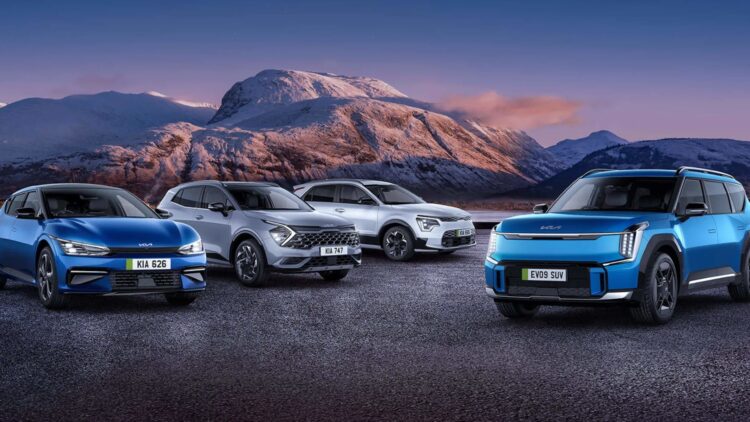Bad news for Kia, the South Korean multinational automobile company has had to recall 62,000 of their 2022-2024 EV6 vehicles. The recall comes with a loss of drive power from a damaged charging unit. Kia has said in a recall report by the National Highway Traffic Safety Administration (NHTSA) that the Integrated Charging Control Unit (ICCU) in the cars may become damaged and stop charging the 12-volt battery. As a result, this could increase the risk of crashes with the loss of drive power.
Course of action for Kia
Kia dealers will inspect and replace the ICCU and its fuse, if necessary, as well as update the ICCU software for free according to the NHTSA recall report. Recall notification letters are expected to be delivered by December 13th and owners may contact Kia customer service (1-800-333-4542). The NHTSA notice says this recall expands and replaces a previous recall (24V-200), and if your vehicle was repaired under the previous recall, you will need to have the new maintenance completed.
The Kia EV6 is an electric vehicle that has been praised for its combination of a sleek design, impressive range, and innovative technology. With a spacious interior, fast-charging capabilities, and advanced safety features, it stands out in the electric vehicle market. The EV6 offers various configurations, including rear-wheel and all-wheel-drive options, and boasts a range of over 300 miles on a single charge depending on the model. Its modern design and eco-friendly features make it an appealing choice for those looking to transition to electric driving without sacrificing performance.
Kia’s journey towards net-zero sustainability: Electric wins over hydrogen
Kia’s EV6 is currently their top-of-the-range renewable energy vehicle. The car was released in the U.S. in 2022 and was the first Kia model to be based on the Electric Global Modular Platform. The car has consistently won numerous awards since its inception including Automotive World’s “Best Cars of the Year” for the 2021/2022 awards’ season.
This year, Kia added to their sustainability portfolio with their unveiling of a new hydrogen engine. However, the engine has yet to be released in any of their vehicles and their electric and plug-in hybrids continue to reign supreme in their green-energy line-up. Many automobile companies are exploring hydrogen, with Toyota being the unofficial leader of the movement.
Kia’s mechanical issues not exclusive
While issues like the one Kia is facing with the ICCU are not extremely common, they do occur occasionally in electric vehicles (EVs) as the technology is still evolving. Problems with charging systems or components that manage power flow, like the ICCU, can affect various EVs, but automakers actively work to identify and address such issues through recalls. As electric vehicle technology becomes more refined, these types of problems are expected to become less frequent.

